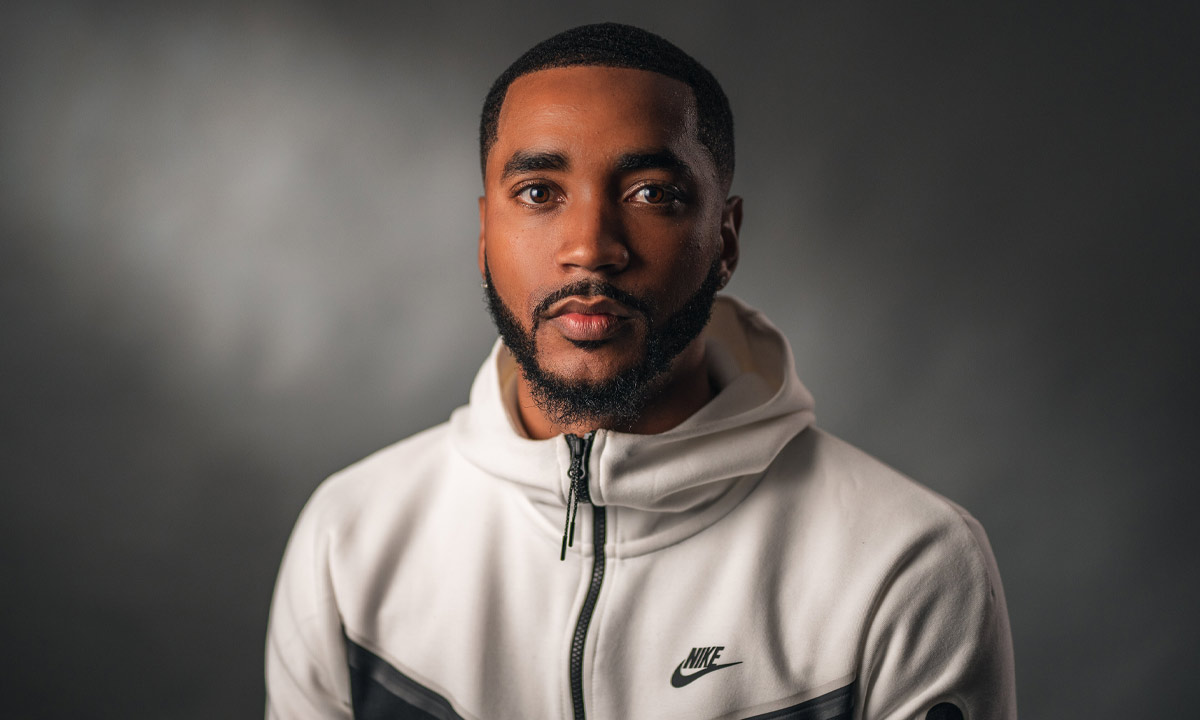Shaquille Smith devoted much of his life to basketball.
“From the age of eight all the way up until graduation, I always identified myself as a basketball player,” Smith reveals in a recent interview.
He started playing at age eight for the North Preston Bulls in Nova Scotia, eventually playing on his high school team. In 2009 he made the Canada Games team, winning a silver medal representing Nova Scotia. He then played five years of varsity ball for Acadia University.
“I committed so much time and energy to it — outside of school, everything was basketball.”
Once his basketball career ended, Smith didn’t know what was next. He reached out to other former athletes in his community and across Nova Scotia and realized his experience wasn’t unique. Former players like himself also didn’t feel prepared for life after basketball.
“If I’m spending 365 days a year playing basketball, I’m not finding new hobbies or learning what makes me tick outside the sport. When I graduated, I wasn’t prepared for the lifestyle change and have since recognized that when you neglect other areas of your life for so long, you’re going to experience identity issues.”
The Futures Program
Facing these identity issues, he chose to reinvent himself. Smith’s experiences compelled him to found The Futures Program, the purpose of which is to change the narrative around sport in Atlantic Canada.
“Sport needs to be used as a vehicle for creating a promising future — and not to be positioned as the future.”
With four levels of programming, The Futures Program helps young players prepare for the next stages of their lives.
“With our Early Engagement program we help kids prepare for high school and establish goals on where they want basketball to take them. For the high school kids, we help prepare them for university, show them how to enrol in their courses, contact their academic advisors and balance their schedule. We also help youth get their first jobs to give them some kind of working experience outside of basketball.”
Elite-level players, as Smith explains, are most at risk to slip through the cracks or have identity issues after sport.
“These players have been celebrated their whole lives. People are attracting them to programs based on their athletic ability, so school becomes a secondary focus right away. Meanwhile, young people are spending four to five years enrolled in a degree program they’re not interested in, accumulating student debt and credit card debt just to stay afloat and play basketball. Once the rug is pulled out from them, there is no strategy to tackle that debt — there are no options basketball-wise and no options career-wise.”
Getting the Message Across
Smith likes to share one statistic with youth from North Preston:
“While most students play basketball as a way of escaping and getting to college or university, only 12% of youth from the community actually graduate and get a degree.”
“That becomes a real eye-opener for young players,” Smith explains. “So many gravitate to sport as a way out, but there is only a twelve per cent chance they will get a degree. We want to help youth find a purpose and translate that purpose into a university degree or a job.”
The Futures Program teaches financial literacy, career planning, resume building and other essential skills youth need to establish secure futures. When asked how these lessons are received, Smith explains that it’s all very positive. “The reason it’s well-received is that we make sure we maintain an elite level of basketball. That’s the hook — we’re never going to be able to tell kids to stop playing so we need to make sure everything we do is at the highest level. We have the best trainers, the best gear, the best uniforms — that’s what draws kids to the program. Then we integrate the other educational components and make them mandatory.”
For many young African Nova Scotians, basketball is thought of as a way out. Shaquille Smith is working hard to make sport the catalyst for a promising future, rather than the end game.
This article is intended as general information only and is not to be relied upon as constituting legal, financial or other professional advice. A professional advisor should be consulted regarding your specific situation. Information presented is believed to be factual and up-to-date but we do not guarantee its accuracy and it should not be regarded as a complete analysis of the subjects discussed. All expressions of opinion reflect the judgment of the authors as of the date of publication and are subject to change. No endorsement of any third parties or their advice, opinions, information, products or services is expressly given or implied by Royal Bank of Canada or any of its affiliates.



















